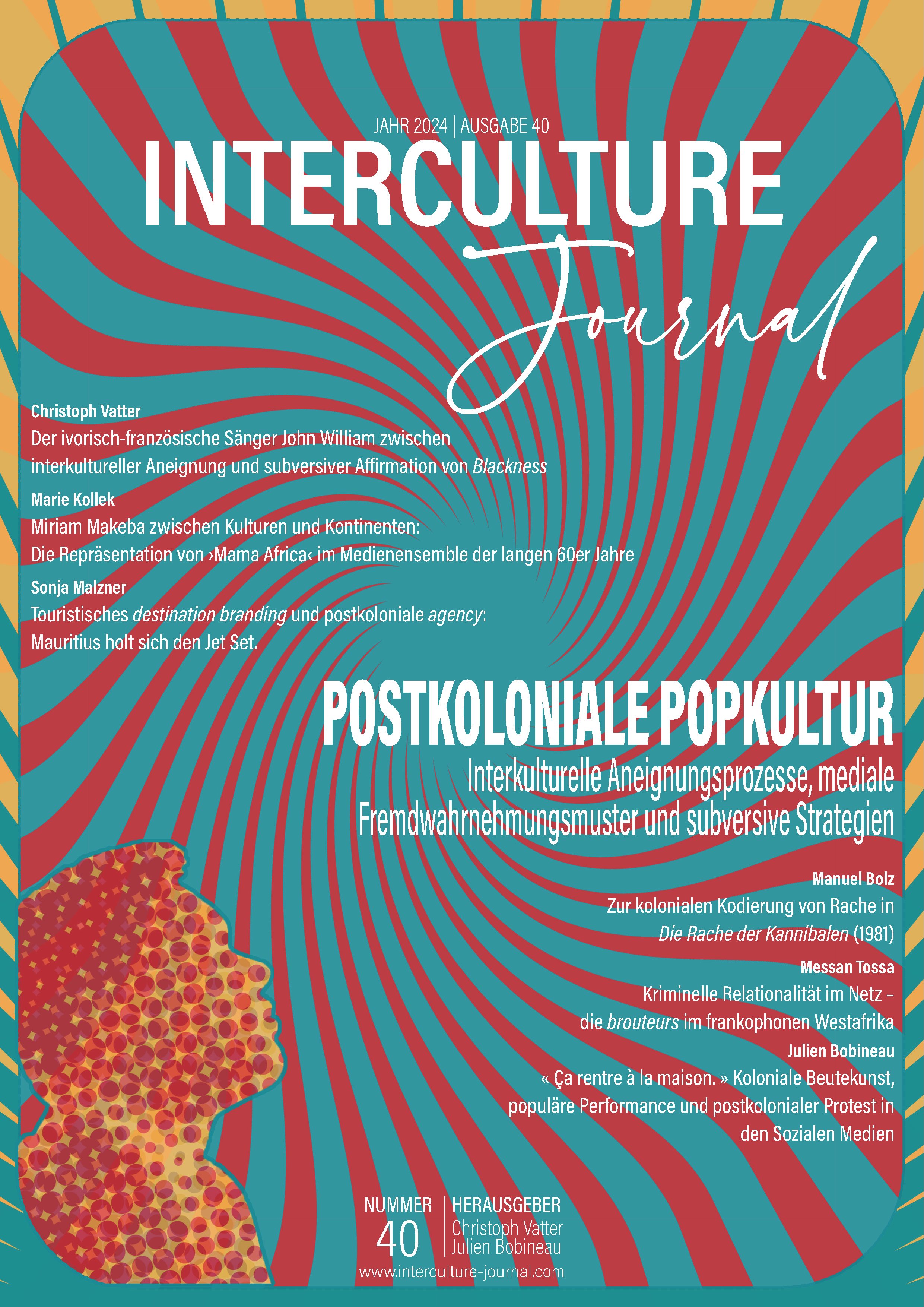Miriam Makeba between cultures and continents
The representation of 'Mama Africa' in the media ensemble of the long 60s
Abstract
Miriam Makeba, who is collectively remembered as ‘Mama Africa’, was one of the first South African artists to achieve a remarkable career in the USA and Europe in the 1960s. Throughout her career, she navigated numerous fields of tension of cultural difference: Between identifying as a black, South African woman and singer and later as a representative and (political) voice of a continent, but also torn between Americanisation and Africanisation. This includes media representations that either emphasise characteristics associated with America or highlight African aspects. This can refer to clothing, repertoire, cultural behaviour or attributed character features. A key moment in this context is her rejection by players from the music industry in the USA due to her marriage in 1968 to the Black Panther activist Stokely Carmichael and her combination of anti-apartheid activism with the civil rights movement. Last but not least, she also operates in the field of tension between self-politicisation and external politicisation. In all areas, conflicts arise between the renegotiation of stereotypes and the simultaneous persistence in still dominant (post-)colonial systems of representation, from which media representations and discursive spaces of interpretation emerge. Based on Miriam Makeba’s media representation in the French and German popular culture, this article examines the constitutive elements of her identity construction as well as the media representations of cultural difference in the context of decolonisation in the 1960s. The analysis is based on a corpus of audiovisual media and on the song lyrics as well as on her autobiographies from 1987 and 2004. A further section focuses on Miriam Makeba’s broader social influence, taking into account an intersectional, power-critical perspective, which enables a network-like perspective
on the media representation of constitutive elements of her identity.
Downloads
Published
Issue
Section
License
Copyright (c) 2024 Marie Kollek

This work is licensed under a Creative Commons Attribution-NonCommercial-NoDerivatives 4.0 International License.
Alle Beiträge im Interculture Journal erscheinen unter der Lizenz CC-BY-NC-ND 4.0.


